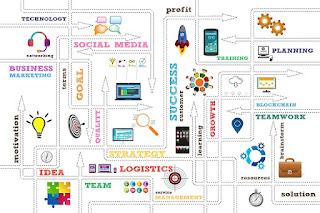How Does Blockchain Technology Help Organizations When Sharing Data
Introduction to Blockchain Technology
What is Blockchain?
Blockchain is a decentralized, distributed ledger technology that records transactions across a network of computers. Each transaction, or "block," is linked to the previous one, forming a "chain." This technology ensures data integrity, security, and transparency.
The Key Principles of Blockchain
Decentralization: Blockchain operates on a peer-to-peer network, eliminating the need for intermediaries.
Transparency: All participants have access to the same information.
Immutability: Once data is recorded, it cannot be altered, ensuring data integrity.
Security: Cryptography safeguards the data, making it highly secure.
Advantages of Blockchain in Data Sharing
Enhanced Security
Blockchain employs advanced cryptographic techniques, making it virtually immune to unauthorized access. When organizations share data through blockchain, they can trust that it remains confidential and tamper-proof.
Transparency and Trust
In a blockchain network, all participants have access to the same data, eliminating the need for intermediaries. This fosters trust among organizations and ensures transparency in data sharing.
Smart Contracts
Blockchain enables the creation of smart contracts—self-executing agreements with predefined rules. These contracts automate processes, reducing the need for manual interventions and the potential for errors.
Traceability
With blockchain, organizations can trace the origin and journey of data. This is invaluable for auditing and compliance purposes, especially in industries like healthcare and finance.
Cost-Efficiency
By eliminating intermediaries, blockchain reduces transaction costs. Organizations can share data more efficiently and cost-effectively.
Real-World Applications of Blockchain in Data Sharing
Healthcare Industry
Blockchain technology can securely share patients' medical records among healthcare providers, ensuring data accuracy, privacy, and quick access to critical information.
Supply Chain Management
Tracking products from manufacturer to consumer is made easier and more transparent with blockchain. It helps in combating counterfeit products and ensuring authenticity.
Financial Sector
Banks and financial institutions use blockchain for secure and transparent cross-border transactions, reducing fraud and transaction times.
Government Services
Governments are using blockchain for secure and transparent voting systems, public record keeping, and more.
Challenges and Limitations
Scalability
As blockchain networks grow, scalability becomes an issue. It's essential to develop solutions that allow for more transactions without compromising speed and efficiency.
Regulatory Concerns
The evolving regulatory landscape around blockchain can pose challenges for organizations. Staying compliant with ever-changing regulations is critical.
Frequently Asked Questions
1. What is blockchain technology?
Blockchain technology is a decentralized, distributed ledger system that ensures secure, transparent, and immutable data sharing.
2. How does blockchain enhance data security?
Blockchain employs advanced cryptography to safeguard data, making it highly secure and resistant to unauthorized access.
3. What industries benefit the most from blockchain in data sharing?
Industries like healthcare, supply chain management, finance, and government services benefit significantly from blockchain technology in data sharing.
4. Are there any limitations to blockchain technology?
Yes, scalability and regulatory concerns can pose challenges for organizations using blockchain technology.
5. How can organizations get started with blockchain for data sharing?
Organizations can start by identifying their specific data-sharing needs and exploring blockchain solutions that align with their goals.
Conclusion
Blockchain technology has emerged as a game changer for organizations when it comes to sharing data. Its core principles of decentralization, transparency, immutability, and security make it a reliable solution for data sharing across various industries. While there are challenges to overcome, the benefits far outweigh the limitations. Embracing blockchain technology is a crucial step toward a more secure and efficient data-sharing future.




Comments
Post a Comment